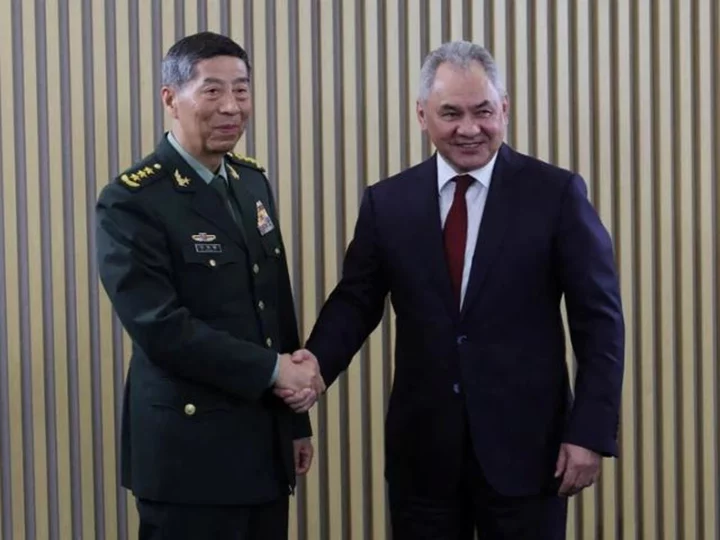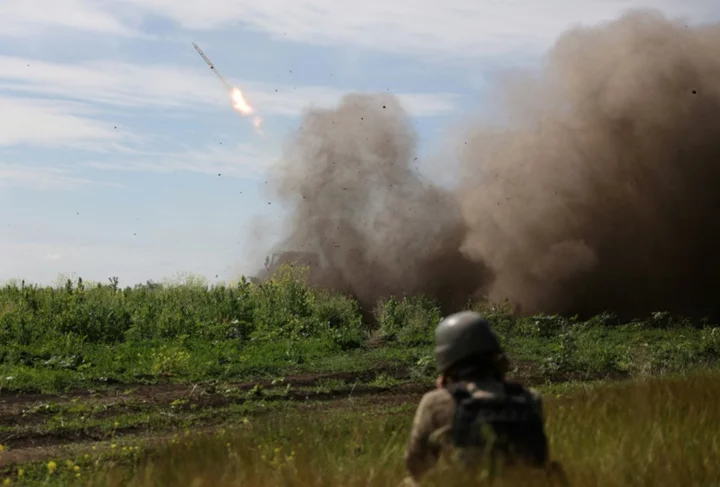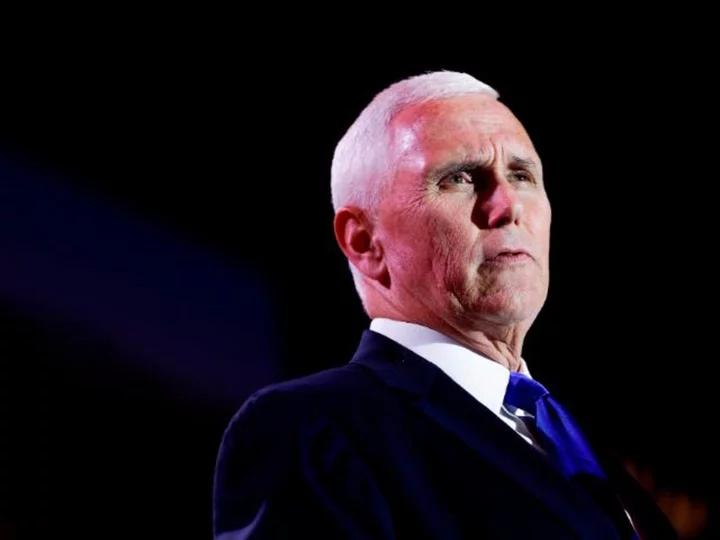China's defense minister Li Shangfu on Tuesday warned against "playing with fire" when it comes to Taiwan in a veiled jab at the United States as he addressed a security conference in Russia.
Speaking at the Moscow Conference on International Security, Li said attempts to "use Taiwan to contain China," would "surely end in failure," according to state-run news agency Xinhua.
Li's comments echoed previous statements by Chinese officials but the location of his speech was significant and symbolic given Moscow's ongoing invasion of Ukraine.
China's ruling Communist Party claims the self-governing democracy of Taiwan and has vowed to take control of it, by force if necessary. It has repeatedly castigated American interactions with the island, with which Washington does not have official diplomatic ties, including for the sale of US arms to Taipei.
Li, who was sanctioned by the US in 2018 for purchases of Russian weapons, joined the Moscow security conference as he began a six-day trip to Russia and its close ally Belarus.
Senior defense officials from more than 20 "friendly states," including Belarus, Iran and Myanmar will also attend the forum, Russian state media previously reported, citing Moscow's defense ministry, which organizes the annual event. No Western countries were invited, state media said.
The visit is Li's second to Russia since assuming his role as defense chief earlier this year. It comes as Beijing has continued to bolster its security ties with Moscow, despite its unrelenting assault on Ukraine, which has triggered a humanitarian disaster with global ramifications.
In a pre-recorded message to the same Moscow conference, Russian President Vladimir Putin accused the US of adding "fuel to the fire" of global conflicts, including through its support of Ukraine.
China has used similar rhetoric in its own official comments about the conflict, despite maintaining that it remains a neutral party and a proponent of peace.
Li on Tuesday also told attendees that China's military was "a firm force in maintaining world peace," and that Chinese leader Xi Jinping aimed to stabilize global security in "a world of chaos."
"We are willing to work with other militaries to strengthen mutual trust in military security strategies and practical cooperation in various specialized fields," Li added, according to Xinhua.
Russian state-run media Sputnik also cited Li as saying that military relations between China and Russia do not target any third party -- a point Chinese officials have made in the past. The Xinhua report did not include the statement.
Li met with his Russian counterpart Sergei Shoigu to discuss cooperation between the two countries' militaries, Xinhua said. China and Russia regularly carry out joint exercises -- including a joint naval patrol off the coast of Alaska in recent weeks.
The Chinese defense chief also held bilateral meetings with Iran, Saudi Arabia, Kazakhstan, Vietnam and other countries' defense departments and military leaders on the sidelines of the conference.
Li's comments on Taiwan come on the heels of a backlash from Beijing as Taiwan's Vice President William Lai, a front-runner in the island's upcoming presidential race, makes planned stopovers in the United States during travel for an official visit to Paraguay.
China's foreign ministry condemned the stopover on Sunday, calling Lai a "trouble maker through and through."
The US maintains an unofficial relationship with Taipei after formally establishing diplomatic relations with Beijing in 1979, but is bound by law to provide the democratic island with the means to defend itself.
During a speech in New York, Lai declared Taiwan will "never back down" to threats from China.
"No matter how great the threat of authoritarianism is to Taiwan, we absolutely will not be scared nor cower, we will uphold the values of democracy and freedom," he said.
China has in recent years ramped up its military intimidation of the island, including following meetings between Taiwanese leaders and US lawmakers.
Putin's invasion of Ukraine has also drawn increased attention to Taiwan as a potential security flashpoint in Asia.
Despite broad differences with the geopolitical circumstances of Russia and Ukraine, the optics of a seemingly more powerful aggressor launching an attack driven by a vision of unification have heightened focus on China's intentions toward Taiwan.
Some analysts have suggested that China was watching Western reaction to Russian aggression in Ukraine with an eye to understanding possible responses to any potential, future moves against Taiwan.









